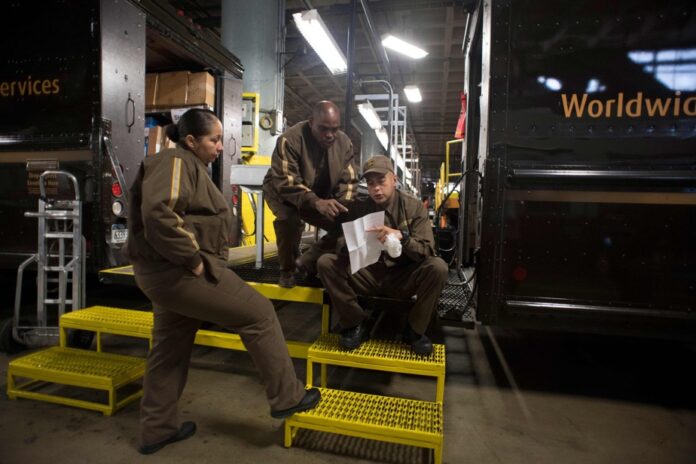(New York) Members of the union representing hundreds of thousands of workers at UPS, which delivers letters and parcels, have almost unanimously cleared the way for a strike if wage negotiations in this group fail , which plays a crucial role in the American economy.
The powerful Teamsters organization has been negotiating the next collective bargaining agreement with management since April 17, and they theoretically only have six weeks left, until July 31, to reach an agreement for its 340,000 members.
Otherwise, a strike will be launched.
With 97% of the vote authorizing a work stoppage, the vote “gives the union maximum leverage to get demands at the bargaining table,” the organization noted in a statement announcing the results.
It “shows that hundreds of thousands of Teamsters are united and committed to getting the best contract possible,” said teamster president Sean O’Brien.
A strike would have a huge impact on the company but also on the US economy: UPS estimates that its trucks transport about 6% of the gross domestic product of the United States every day.
UPS boss Carol Tome regularly says she hopes to get a deal in time. “We told you from the start that it would be hectic and it’s confirmed,” she said in April.
In a message on Friday, the group stressed that this vote “does not (mean) that a strike (was) imminent” and does not affect its operations in any way. Such a vote is “a normal step in union negotiations,” UPS says.
Transport industry experts generally expect a pay rise, although it is unlikely to be as high as that demanded by the union, notes Anthony DeRuijter of consultancy Third Bridge.
But “there shouldn’t be a strike,” he argues, because the Teamsters have an interest in showing that they can make progress if they want to convince workers at other companies like Amazon to unionize.
The two parties have already concluded an agreement on the installation of air conditioning and new fans in the trucks, a crucial aspect for drivers who can suffer from high temperatures in the back of the vehicles.
The union also won that management not use drones and other new transport technologies without consulting it, as well as restrictions on the use of cameras monitoring drivers.
But Sean O’Brien, who did not give quantified salary targets, warned that many points remained under discussion.
These negotiations come at a special time for the labor movement in the United States. Since 2021, small groups have for the first time succeeded in creating sections in large companies such as Starbucks, Amazon and Apple. But union density in the private sector has fallen further in 2022, to just 6%.
However, trade unions in the transport sector have benefited from a certain momentum since the pandemic, which has highlighted the essential role of logistics.
On Wednesday, an agreement was reached between the association representing 29 West Coast ports and the union representing stevedores, after months of discussions and two weeks of slow work that affected port activity.
Terms of the contract have not been made public but according to Sal Mercogliano, a history professor at Campbell University who follows the shipping industry closely, the stevedores got a substantial raise.
In a joint statement, the ports and the union hailed Labor Minister Julie Su’s “key role” in the negotiations.
President Joe Biden, who regularly defends the importance of trade unions, himself intervened at the end of 2022 to avoid a strike in the rail sector.
For Sal Mercogliano, it is possible that the US government will again work “behind the scenes” to avoid a strike by UPS drivers and handlers.
If business activity has slowed down a bit since the peak of the pandemic, the union can cite high inflation, says the expert, who says the Teamsters “will push to the limit”.















